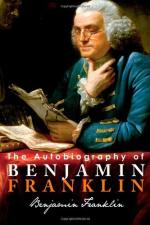
|
| Name: _________________________ | Period: ___________________ |
This test consists of 15 multiple choice questions and 5 short answer questions.
Multiple Choice Questions
1. What happened upon this trip in England to represent the colonists that Franklin recorded in his autobiography?
(a) His discussions with English officials.
(b) Nothing.
(c) His discussions with the King.
(d) His discussions with the Queen.
2. Mr. Whitefield was from which locale?
(a) Wales.
(b) Scotland.
(c) Ireland.
(d) England.
3. Who would appoint a grand-president?
(a) Male property owners over 21.
(b) Colonial governments.
(c) Colonial landowners.
(d) The crown.
4. Franklin proposed the governmental group would contribute an amount equal to what?
(a) Half that of the subscribers.
(b) Two percent of city taxes collected annually.
(c) That of the subscribers.
(d) Twice that of the subscribers.
5. How successful was Franklin's funding proposal for the hospital?
(a) Funding was about in accordance with the original plan.
(b) Funding was far slower than in the initial plan.
(c) Funding was somewhat slower than in the initial plan.
(d) Funding was soon more than in the original plan.
6. Which organization awarded Franklin an honorary membership and a gold medal?
(a) Society of Scientific Knowledge in Wellington.
(b) Royal Order in Scientific Exploration of London.
(c) Royal Society of London.
(d) Royal Exploratory Society of Cambridge.
7. Which department did Franklin lobby for in Philadelphia that other cities simulated but he claimed was the best?
(a) Sewer.
(b) Garbage.
(c) Water.
(d) Fire.
8. In what year did Franklin invent his famous stove?
(a) 1736.
(b) 1738.
(c) 1742.
(d) 1740.
9. Franklin noted his kite experiment, which he was proud to see written about where?
(a) Newspapers around the globe.
(b) Scholarly journals.
(c) Many scientific journals.
(d) Many electricity history books.
10. Where did Mr. Whitefield move on to from Philadelphia?
(a) South Carolina.
(b) North Carolina.
(c) Georgia.
(d) Virginia.
11. After the British army failed, the colonies were even more anxious to develop and fund what?
(a) A public colonial army.
(b) A public militia.
(c) A private quasi-military guard.
(d) A private militia.
12. Franklin wrote that if you performed an act of kindness for a person, what would that person do?
(a) Return the favor when a future need arose.
(b) Be very appreciative and thank you.
(c) Seek out another and perform a kindness.
(d) Let others know about the favor they received.
13. Who was Franklin's friend that suggested they build a town hospital?
(a) Dr. Bold.
(b) Dr. Hollmes.
(c) Dr. Bond.
(d) Dr. Keimer.
14. What project did Franklin undertake subsequent to the public hospital?
(a) City sewer system.
(b) City water system.
(c) Public city garbage collection.
(d) Cleaning the city streets.
15. What was the crown's response to the American proposal?
(a) They rejected the plan and proposed an army paid by a special tax.
(b) They accepted the plan if Americans paid a special tax for an army.
(c) They modified the plan and proposed a president that answered to the crown.
(d) They rejected the plan and sent an army to take over.
Short Answer Questions
1. Franklin undertook the improvement of law enforcement, including the appointment of non-biased policemen and what else?
2. Franklin's troops moved on to what location where they found most of the inhabitants dead?
3. Braddock and the troops were sent for what two reasons?
4. What did Mr. Whitefield construct a large building for?
5. What did Franklin institute using the building that Mr. Whitefield built?
|
This section contains 595 words (approx. 2 pages at 300 words per page) |

|




